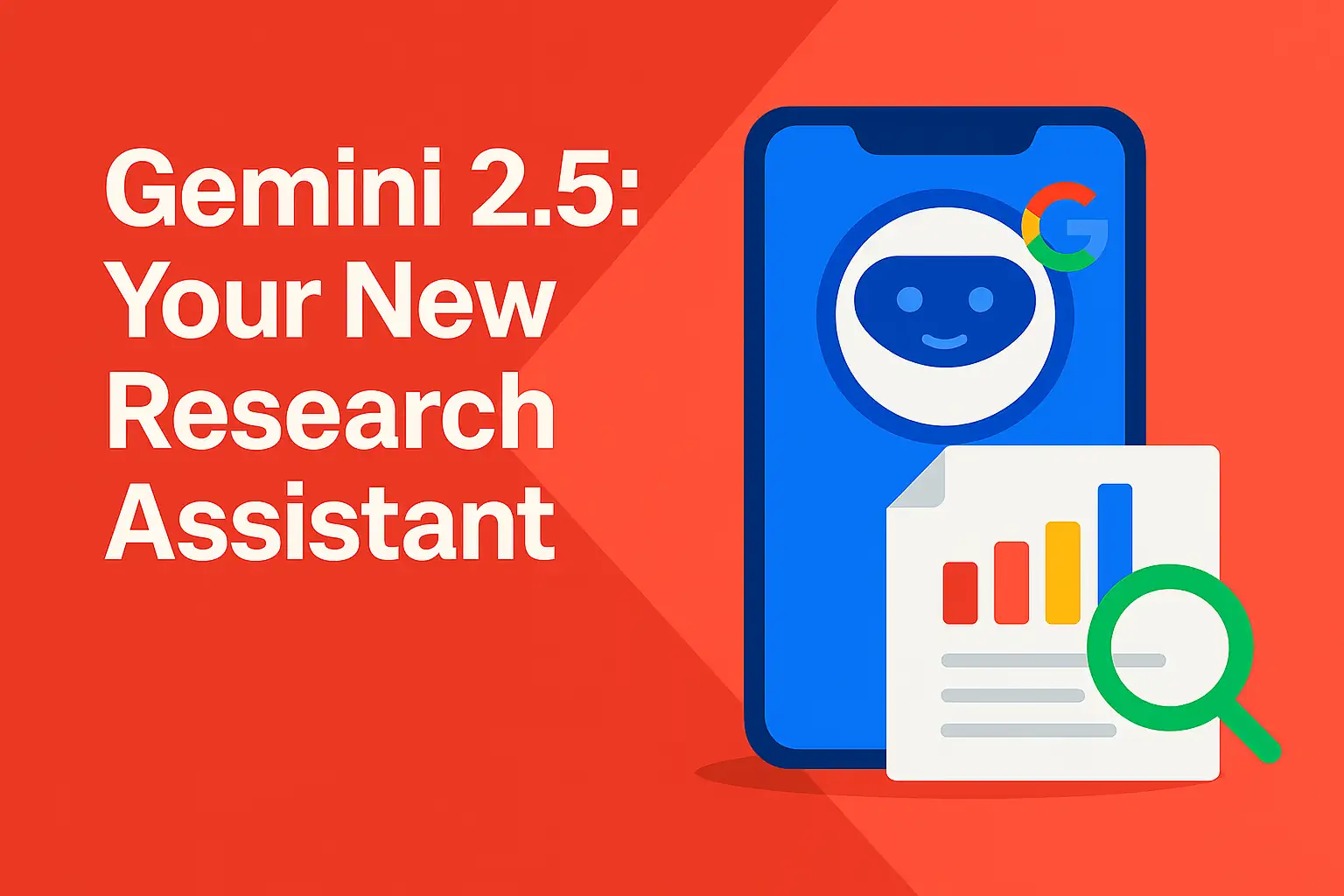
Automate Market Research with Gemini 2.5 AI: Step-by-Step Guide to Smarter Competitor Analysis
- Why AI-powered market research saves hours
- How Gemini 2.5 Computer Use automates research
- Step-by-step setup guide (10 minutes)
- Example: Competitive analysis for email marketing tools
- Pro tips for better, compliant automation
- Real-world use cases for marketing and product teams
- Why AI automation is the new standard for insights
Why AI-powered market research saves hours
Traditional market research involves endless tabs, manual note-taking, and time-consuming comparisons. Even if you automate some steps with spreadsheets, there’s still human effort in structuring, summarizing, and updating data.
That’s where **Gemini 2.5 Computer Use** comes in. It combines Google’s latest multimodal AI model with **Playwright** automation — giving you an intelligent browser agent that literally does the research for you.
In practice, this means your AI can:
- Visit live competitor websites in Chrome.
- Extract pricing tables, feature lists, and FAQs.
- Structure the output into tables or JSON.
- Write a summary with actionable insights and recommendations.
It’s perfect for **marketing teams, product managers, sales enablement, or startup founders** who need fast insights without hiring external research agencies.
How Gemini 2.5 Computer Use automates research
At its core, Gemini 2.5’s Computer Use API allows the AI to operate your browser autonomously — just like a human researcher. Instead of being limited to static text queries, the AI can now perform real actions: clicking, scrolling, copying text, or reading structured data from HTML elements.
Combine that with Google’s advanced summarization and reasoning models, and you get a researcher that can both gather and interpret information.
That’s why many developers call it “AI meets Playwright.” It’s not just scraping — it’s **contextual understanding** of what matters most for your task.
Step-by-step setup guide (10 minutes)
You don’t need a full engineering background to get started. Here’s how to set up Gemini 2.5 Computer Use for automated market research:
- Install Python (Mac or Windows). You’ll only need to do this once.
- Clone the Gemini 2.5 Computer Use GitHub repo:
https://github.com/google-gemini/cookbook/tree/main/gemini-2.5/computer-use - Activate your virtual environment and install dependencies:
pip install -r requirements.txtplaywright install - Get your Gemini API key from AI Studio, link your billing, and set it as an environment variable:
export GEMINI_API_KEY="your_api_key_here" - Run your first query and watch the AI do the rest:
python main.py --query="Compare pricing and features of top CRM tools for startups; output as table + summary."
That’s it — within minutes, Gemini will open Chrome, navigate competitor sites, extract data, and generate a structured report you can use instantly.
Example: Competitive analysis for email marketing tools
Let’s walk through a real scenario.
Say you want to analyze five popular email marketing platforms — Mailchimp, ConvertKit, Brevo, Klaviyo, and HubSpot — to find out which one offers the best value for small businesses.
Your command might look like this:
python main.py --query="Compare prices, plans, and free trials for the top 5 email marketing tools for small businesses; output as table + recommendation based on price-quality ratio."The AI will then:
- Visit each official website and pricing page.
- Detect plan names (Free, Starter, Pro, Enterprise, etc.).
- Extract key features such as automation workflows, number of contacts, email limits, and integrations.
- Organize all data into a comparison table (CSV or JSON).
- Summarize findings and highlight the best overall choice for value and scalability.
In about five minutes, you’ll have a report that would normally take an analyst two hours to compile — complete with pricing insights and positioning notes.
Pro tips for better, compliant automation
- Be specific with your query. Mention your target market, region, and decision criteria (“B2B SaaS companies in Europe under $50/month”).
- Include source URLs. Add them in the output for easy fact-checking and transparency.
- Respect robots.txt. Use AI responsibly — avoid scraping restricted data or violating site terms.
- Use structured outputs. Request tables, JSON, or Markdown summaries for easy integration into reports or dashboards.
- Validate high-impact insights. Always double-check outliers or inconsistencies before acting on results.
Real-world use cases for marketing and product teams
Gemini 2.5 Computer Use opens doors for many industries and roles. Here are some examples where it can add serious value:
- Product marketing: Compare competitors’ pricing models and update internal battlecards weekly without manual work.
- Sales enablement: Build real-time competitive decks for prospects with the latest feature and price data.
- Market research agencies: Scale your analysis from 5 to 50 competitors — without increasing headcount.
- E-commerce teams: Track competitor discounts and new product listings daily.
- Startups & founders: Identify market gaps and pricing opportunities before launching a new SaaS product.
It’s not just about saving time — it’s about increasing accuracy and staying ahead of market trends with data that’s always fresh.
Why AI automation is the new standard for insights
We’ve entered a world where data moves too fast for humans to keep up manually. The companies that win are the ones that automate their intelligence pipelines — transforming scattered data into real, actionable insight.
Gemini 2.5 Computer Use is more than a technical demo — it’s a **practical research assistant** that scales with you. From competitive intelligence to pricing audits and growth research, it gives teams the ability to act faster, smarter, and with confidence.
The question isn’t whether AI can replace analysts — it’s how fast you can empower your analysts with AI.
Because in 2025, **speed of insight = speed of growth**. ⚡